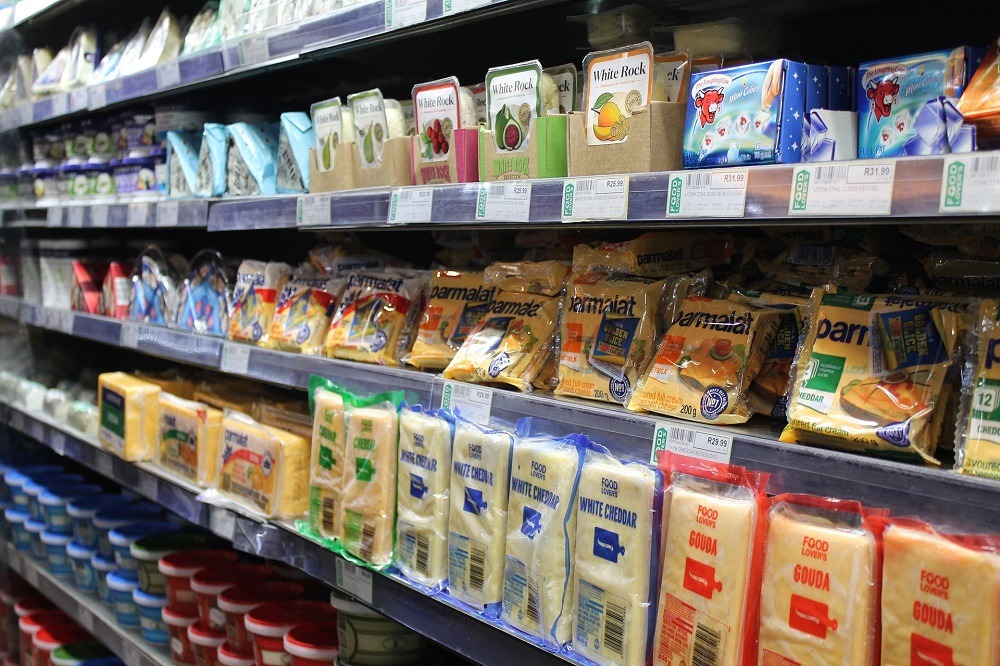Amcor became the first major company in the industry to pledge to develop all of its packaging to be recyclable or reusable by 2025

Amcor has been a key driver in supporting the creation of a circular economy (Credit: Amcor)
There has been a notable shift towards sustainable packaging in recent years with Australian firm Amcor playing a significant role in that development.
The Melbourne-based company is widely regarded as a global packaging leader after helping drive the approach towards flexible packaging – a process allowing the shape of a packed item to be easily changed.
With the impact of climate change a constant concern and the threats of more ecosystems being destroyed following years of poor recycling practices, many senior figures have called for changes in the way firms across many industries perform their duties.
Amcor has been a key driver in supporting the creation of a circular economy and, in 2018, it became the first major company in the industry that pledged to develop all of its packaging to be recyclable or reusable by 2025.
CEO Ron Delia said he is confident the outcome of the 2025 pledge will be “constant, accelerated change” that helps move towards a model “encouraging and rewarding a cycle of use, reuse and recycling”.
What packaging does Amcor specialise in?
The company’s history dates back to the 1860s, when Brit businessman Samuel Ramsden started up a paper mill on the banks of Melbourne’s Yarra River.
The company was known as Australian Paper Manufacturers (APM) until it diversified into a range of packaging interests in the 1970s and 1980s, before rebranding as Amcor in 1986.
More than 30 years on, the firm produces flexible and rigid packaging for an array of items from food and beverages, to speciality cartons, pharmaceuticals, healthcare, and home care products.
In 2018, it purchased US rival Bemis for $9.2bn – allowing the firm to gain a foothold in the US market and relocate its stock exchange to the country.
The deal created a company with a market capitalisation of $23bn and revenues in excess of $17bn.
Its 50,000-strong employees now work across about 250 locations in more than 40 countries – making it the world’s largest listed packaging firm.
Amcor’s path towards sustainability
Although being a global figure brings many rewards and financial benefits, it puts pressure on companies such as Amcor to lead the industry towards sustainability.
The firm claims it is “leading the development and manufacture of packaging that is better for the planet”, as well as its customers and consumers while also being good for shareholders and workers.

In its 2019 sustainability report, CEO Ron Delia said his company has “made good progress” against its commitment to design all its packaging to be recyclable or reusable by 2025, to significantly increase its use of recycled materials, and to help drive greater recycling of packaging around the world.
He noted the importance of responsible packaging to the firm and said a lot of its portfolio is “already technically recyclable or reusable” – but that it is in the process of designing packaging that uses less material.
Sustainability schemes Amcor has joined
As part of its efforts to support change, Amcor joined the Chilean Plastics Pact (PCP) in April 2019.
The initiative makes up part of the Plastics Pact Global Network was launched in 2018 by the Ellen MacArthur Foundation in the UK.
The aim is to rethink the future of plastics by bringing together all actors in the supply chain, such as companies, the public sphere and NGOs.
In November 2019, Amcor launched the ‘Choose Plastic’ marketing campaign, with the aim of educating consumers, customers and other stakeholders on the benefits of plastic packaging.
The scheme provided an informative brochure and other materials designed to clear up common misperceptions regarding plastic packaging and demonstrate where polyethylene terephthalate (PET) stands versus other packaging types.
The firm claims PET bottles are infinitely recyclable, durable and generate up to 70% fewer greenhouse gas emissions than other packaging types.
In its latest commitment towards supporting sustainable practices, Amcor joined HPRC in March 2020 — a coalition of businesses across healthcare, recycling and waste management, seeking to improve the recyclability of plastic products within healthcare.
As the group aims to address all aspects of the packaging supply chain, Amcor will be hoping its experience in the design of this for medical devices in hospitals and other treatment settings should play a key role in helping the initiative to be a success.
